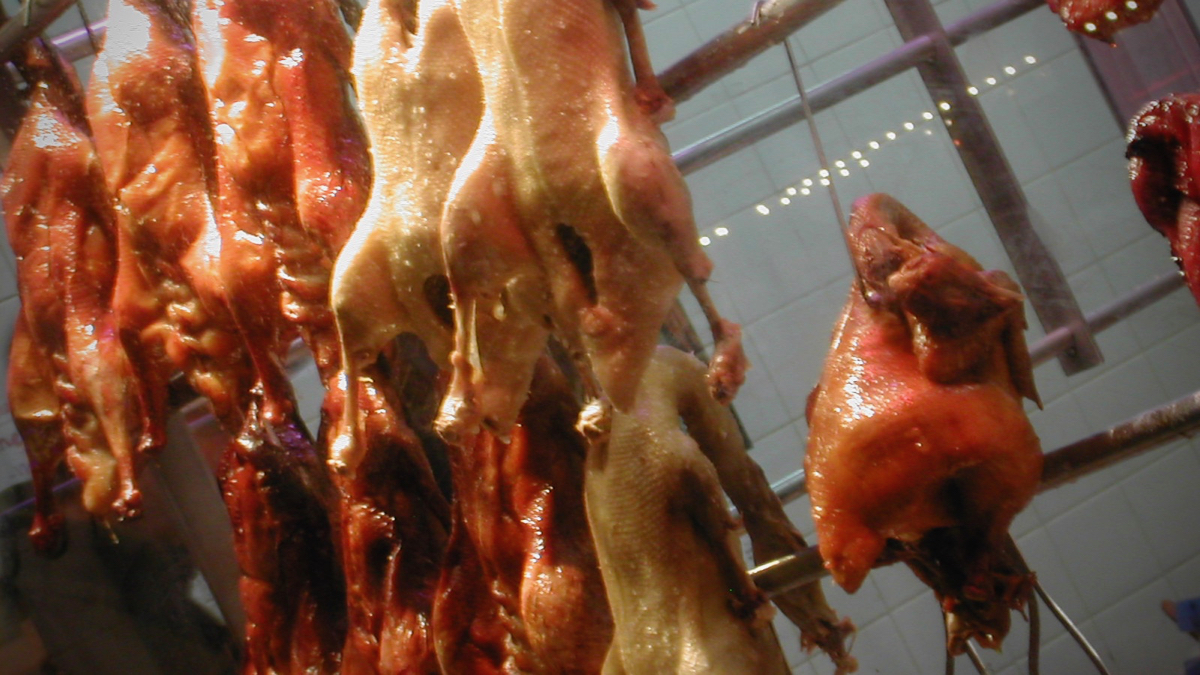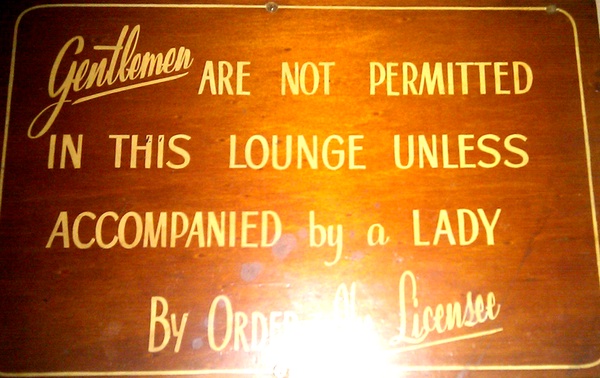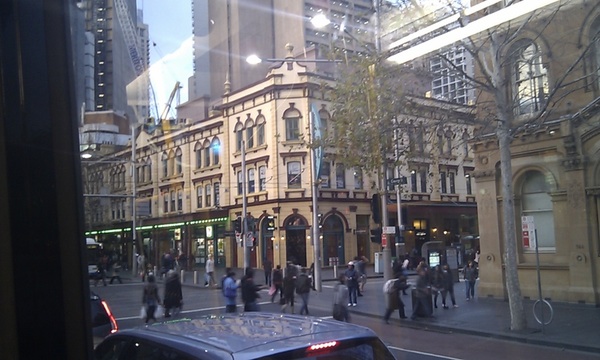Website age verification dropped, business registers modernisation program dumped after spending billions, Centrelink bad, furore at the OAIC, fixes for the gig economy, and more.
Continue reading “Digital developments from Canberra 51”Weekly Wrap 359: Will I heed the Ducks of Insight?
 I don’t quite understand my week of Monday 10 to Sunday 16 April 2017. It also contained quite a bit of alcohol. Which has both good and bad points.
I don’t quite understand my week of Monday 10 to Sunday 16 April 2017. It also contained quite a bit of alcohol. Which has both good and bad points.
Most of the week’s achievements are not ready to be made public, or are personal matters that never will be, which so the list below look silly. I’m not sure that these Weekly Wrap posts even work any more.
Oh well, on with the show…
Articles
- Australia’s ambitious action plan for open government, ZDNet Australia, 12 April 2017. I did this as a straight news piece.
Podcasts
None.
Media Appearances
- On Wednesday, I explained why fingerprint readers aren’t as secure as you might think on ABC Adelaide. Once more, I may or may not post this audio. Stay tuned, or something.
Corporate Largesse
None, despite what I’d expected to happen.
The Week Ahead
Monday has been the public holiday for Easter Monday, so I’ve just been doing household things. And writing this.
On Tuesday, I’m working on the SEKRIT editorial project, and sorting out some clients’ loose ends, as well as the shopping and other errands in Katoomba.
Wednesday will see more work on the SEKRIT editorial project, plus some writing for ZDNet, before taking the train down to Sydney. At 1930 AEST I’m doing a spot on ABC Melbourne from the ABC’s Sydney studios. I’ll stay in Sydney overnight.
On Thursday morning I’m covering an event for the Australian Cyber Security Growth Network. I’ll write about that, and do some other things, before heading back up the hill.
Friday through Saturday don’t have anything assigned yet.
Further Ahead
Anzac Day is on 25 April, and this year that’s a Tuesday. As is the custom, the Monday beforehand is likely to become another day in a de facto four-day weekend. I might poke at some work, though.
I’m covering the AusCERT Information Security Conference on the Gold Coast from 23 to 26 May; the 5th International Conference on Cybercrime and Computer Forensics (ICCCF) on the Gold Coast from 16 to 18 July, or at least I hope; and the national conference of the Australian Information Security Association (AISA) in Sydney on 10 to 12 October.
[Photo: Ducks of Chinatown, photographed in Haymarket, Sydney, on 20 July 2003. I’m sure it’s totally unrelated to anything that happened this week.]
McLuhan’s aphorism rules at The Global Mail, alas
![]() “The medium is the message”, the sole phrase that seems to remembered of Marshall McLuhan’s work, certainly held true in Friday’s story at The Global Mail, Twitter Tackles Open Government.
“The medium is the message”, the sole phrase that seems to remembered of Marshall McLuhan’s work, certainly held true in Friday’s story at The Global Mail, Twitter Tackles Open Government.
The piece is a follow-up to an article published on Thursday, Why So Secretive?, by OpenAustralia founders Katherine Szuminska and Matthew Landauer — a stinging attack which alleges that Australia’s Department of Immigration and Citizenship (DIAC) is “unlawfully obstructing over 100 Freedom of Information (FOI) requests from the general public in an attempt to maintain secrecy”.
Friday’s article centres on a subsequent discussion on Twitter between DIAC national communications manager and “avid tweeter”, as The Global Mail quaintly describes him, Sandi Logan.
In 2013, isn’t it just a bit retro to draw attention to someone using Twitter a bit? Particularly when it’s their job to respond to public comment?
Anyway, here’s what I tried to post as a comment at The Global Mail just now, only to be told: “Your comment was unable to be posted at this time. We apologise for the inconvenience.”
The medium truly is the message. The first of Logan’s statements quoted in this story contains 68 words of substantive content, counting the URLs as one word each, and 48 of those are a direct quote from legislation.
Anywhere else this would be a “brief statement”, perhaps even a “terse statement” if the journalist was wanting to pre-judge Logan’s mood on the readers’ behalf — but I was once taught not to do that because it’s editorialising.
But because Logan’s words are spread across four tweets, it becomes a “flurry”. Really?
The Macquarie Dictionary gloss for “flurry”, skipping over the literal weather-related ones, is: “3. commotion; sudden excitement or confusion; nervous hurry.”
Logan’s entire conversation reads to me as a perfectly level-headed conversation with critics. Certainly his initial comment is one simple, coherent paragraph, spread across four tweets only because the limits of the medium demand it.
Now that I’m blogging this, I’ll add my usual gripe about the headline.
“Twitter Tackles Open Government”? No, the San Francisco-based company did no such thing. Nor did the abstract communications network that operates via their servers. People tackled a DIAC staffer. And as far as I can see, all but one of the people quoted was a journalist. The medium through which that happened is hardly relevant.
A handful of journalists and sprinkling of public policy advocates is hardly representative of Twitter users as a whole. If we analysed the level of Twitter discussion about DIAC that night, in comparison with the global firehose of tweets, I doubt that we’d even see a prostate-corked dribble.
Still, a more accurate headline, such as “A few journalists question a media adviser”, would detract somewhat from the “power to the people” theme.
The icing on the cake for me is that the article is about demands for DIAC to be more transparent, and that commenters at The Global Mail are advised that “you have a lot more credibility when you use your full name”, and yet it’s bylined… “By Staff”.
Goose, gander etc, folks.
[Disclosure: I know Katherine Szuminska and Matthew Landauer, and have had dinner and drinks with them on numerous occasions. For what it’s worth, I generally support their calls for more government transparency. Browsing through what I’ve written previously will soon reveal my attitude towards the government’s asylum-seeker policies.]
Weekly Wrap 23
A weekly summary of what I’ve been doing elsewhere on the internets and in the media and so on and so forth.
Articles
- Fairfax’s hypocritical web ‘spying devices’ beat-up, for Crikey. The “spying devices” in question are tracking cookies. Nothing new there. But the story was on the front page of the dead-tree slices. Why? Apparently politicians’ websites use tracking cookies. Shock! Horror! And Fairfax uses even more of them. Hypocrites.
- Senate to re-open bloggers versus journalists, for Crikey. A lightly-edited version of my blog post on the same topic.
- Indonesian e-commerce held back by uncertain laws, for Crikey. Based on material presented by leading Indonesian legal academic Dr Sinta Dewi.
Podcasts
- Patch Monday episode 64, “The info commissioner’s fight: Govt 2.0”. My interview with the new Australian Information Commissioner, Professor John McMillan. The new Office of the Australian Information Commissioner came into being on 1 November and represents a significant change to the way the Australian Government will be handing its information — especially given the Declaration of Open Government earlier this year.
Media Appearances
- On Monday I spoke with Fiona Wyllie on ABC Radio’s Statewide Afternoons and the Fairfax tracking cookie beat-up and a father who installed a radio jammer to kill the internet so his kids wouldn’t spend so much time online. Alas, there is no recording. That’s a shame. It’s not often you’ll hear me giving parenting advice on the radio.
Geekery
- I learned how to use Google Site Search by plugging it into the Fender Australia website. It’s fairly straightforward, but it quickly shows you the problems with how your site is constructed. As an aside, if you’re a web developer visiting that site for the first time you’ll be horrified to see that in many places it uses tables for layout. That’s because the site was originally built in 2001 and has just been re-skinned a couple of times since. It’s also maintained manually, all 950 pages of it. There’s little business case for a major overhaul — the numbers are not compelling — but we’re planning to build a proper modern database-driven site early in 2011.
Corporate Largesse
None.
Elsewhere
Most of my day-to-day observations are on my high-volume Twitter stream, and random photos and other observations turn up on my Posterous stream. The photos also appear on Flickr, where I eventually add geolocation data and tags.
[Photo: Old bar sign at the Town Hall Hotel, Newtown. Gender roles were a little different back then.]
Weekly Wrap 7
A weekly summary of what I’ve been doing elsewhere on the internets.
Articles
- ‘Open Government’ declared in Australia for Crikey. Buried in the news just before the Australian election was called last weekend, Lindsay Tanner, the Minister for Finance and Deregulation, issued the Declaration of Open Government which had been called for by the Government 2.0 Taskforce. Someone ought to tell the Attorney-General’s Department.
- Two other articles have been written but are still in the production pipeline, one for Crikey and one for ABC Unleashed. And I’ve been researching a 2000-word feature for ZDNet Australia. So I’ve been very busy, you just haven’t seen the output yet.
Podcasts
- Patch Monday episode 49, “The software patent controversy explained” with guest Kimberlee Weatherall. She teaches intellectual property law at the University of Queensland.
- A Series of Tubes episode 112, in which I chat with Richard Chirgwin about the Declaration of Open Government, the Privacy Commissioner’s findings on the Google Street View Wi-Fi incident, and how the Pirate Party fell at the first hurdle. Also, Internode’s John Lindsay explains the class action they and iiNet are involved with concerning Testra’s wholesale ADSL2+ pricing, and Steve Chung, consultant at Ruckus Wireless, talks about Wi-Fi privacy.
Media Appearances
- On Monday afternoon I did a quick spot on ABC Radio Statewide NSW with Paul Turton, talking about Opera Australia’s plan to encourage Twitter users to tweet reviews of their performances. Alas, this isn’t podcast anywhere.
[Photo: “Paddy Maguire’s Hotel“, at the corner of George and Hay Streets, Haymarket, Sydney, taken from a bus window on 23 July 2010.]
Government 2.0 taskforce announced

I’m in Crikey today, writing about yesterday’s Public Sphere forum Government 2.0: Policy and Practice and the launch of the Rudd government’s new Government 2.0 Taskforce. My article, free for all to read, is Government 2.0 Taskforce: first a logo design contest.



